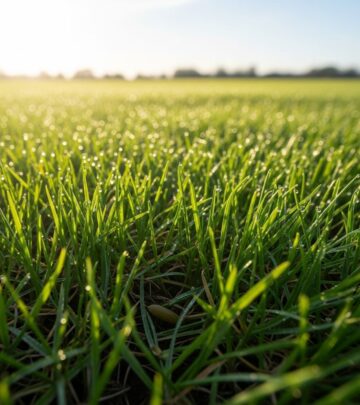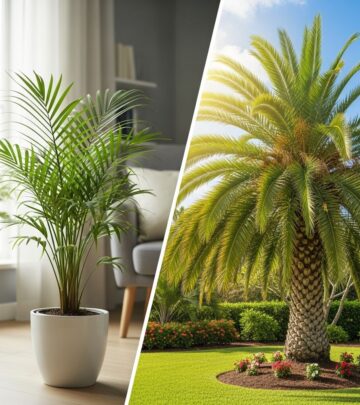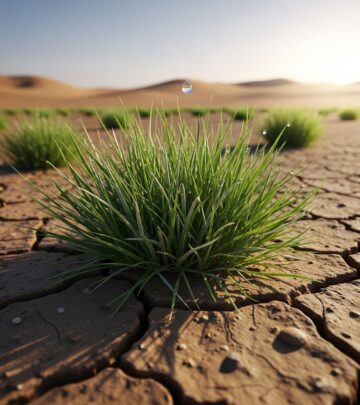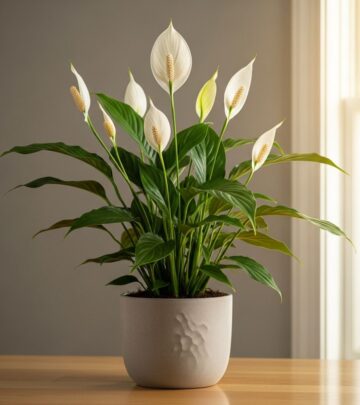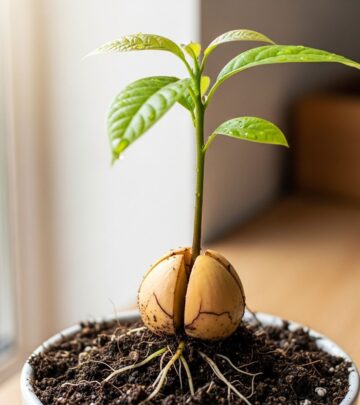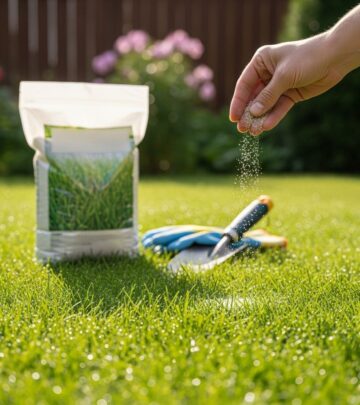Epsom Salt and Roses: Myth, Science, and Best Practices
Trust research-backed advice to nourish your garden without risking nutrient imbalances.
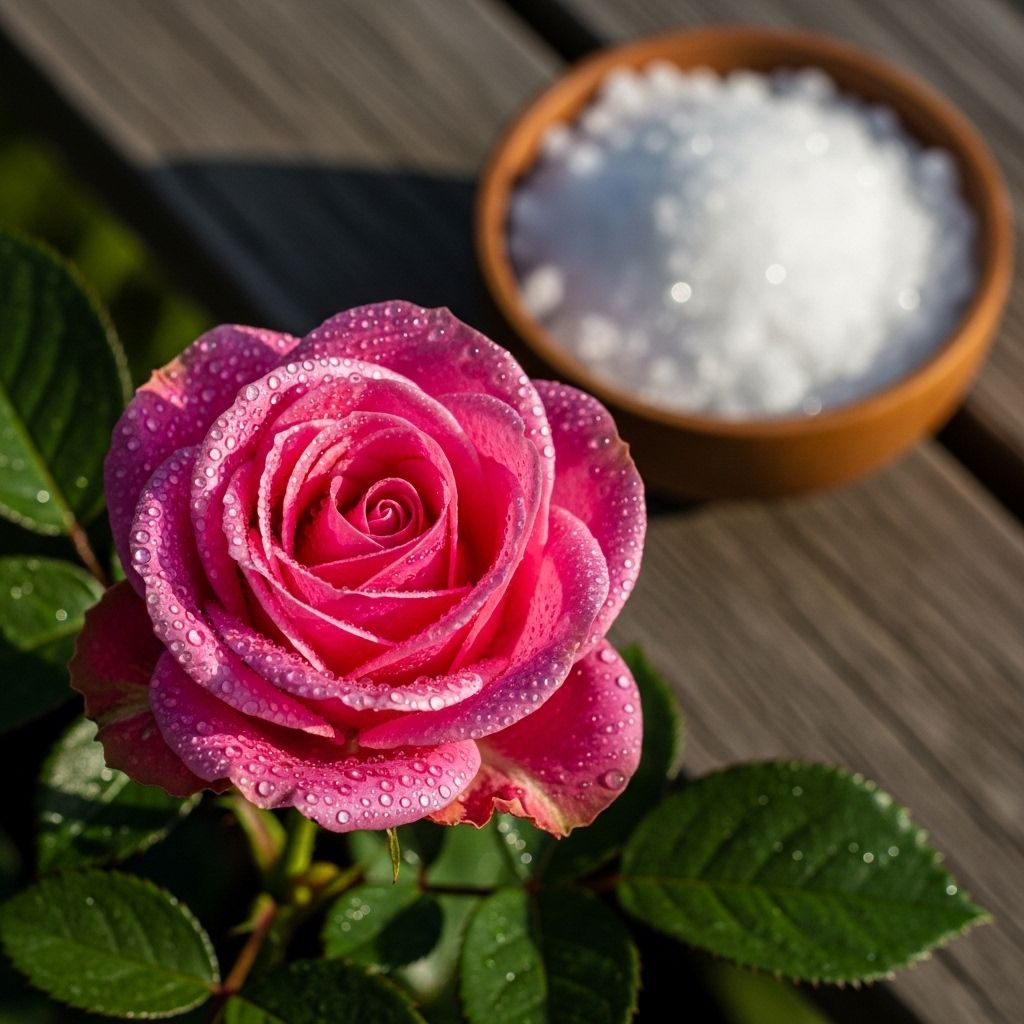
For generations, gardeners have touted the virtues of Epsom salt in the rose garden. From claims of bigger blooms to stronger, healthier plants, advice about Epsom salt abounds. But does science support these assertions, or are they simply garden folklore? In this guide, we examine the facts, separate myth from reality, and outline best practices for those seeking beautiful roses.
Quick Overview: Epsom Salt and Its Reputation in Rose Gardening
Epsom salt, chemically known as magnesium sulfate (MgSO4), is both inexpensive and easy to find. Gardeners often sprinkle it around rose bushes or dissolve it for foliar sprays, trusting it will boost growth and bloom. But before incorporating Epsom salt into your regular garden routine, it’s crucial to examine what research and expert opinion reveal about its actual effects on rose health.
- Epsom salt is not a universal remedy: While magnesium is an essential plant nutrient, not all soils or plants benefit from additional magnesium.
- Use only if magnesium deficiency is confirmed: Unnecessary application may cause harm by upsetting the nutrient balance in your soil.
- Scientific support is limited: Most claims about Epsom salt’s garden benefits are anecdotal, not scientifically proven.
Understanding Epsom Salt: What Is It?
Epsom salt is a naturally occurring mineral compound—the combination of magnesium, sulfur, and oxygen. It derives its name from the English town of Epsom, where it was historically extracted from mineral-rich spring waters.
In gardening, Epsom salt’s value comes from:
- Magnesium: Vital for photosynthesis, as it is the central atom in chlorophyll molecules.
- Sulfur: A key component of certain amino acids and vitamins that plants need.
Common Myths: Epsom Salt as a Miracle Ingredient for Roses
Epsom salt enjoys a reputation as a garden cure-all. Below are widespread myths debunked by evidence:
- Myth: Epsom salt creates stronger, more productive roses.
Truth: There is little scientific support for this. Roses receive most of their nutrition from macronutrients like nitrogen (N), phosphorus (P), and potassium (K). Micronutrients, including magnesium, are only beneficial if a deficiency is present. Regular or excessive application can cause more harm than good. - Myth: Epsom salt prevents or cures rose diseases and pests.
Truth: Epsom salt has no effect on pests or diseases affecting roses. - Myth: Epsom salt is an essential part of rose fertilization.
Truth: Roses primarily require balanced fertilizers rich in macroelements. Epsom salt should not replace these basics.
Scientific Evidence: When Is Epsom Salt Actually Useful?
The central premise behind using Epsom salt is to supply magnesium—but not all soils or roses are magnesium deficient. Scientific and university extension research consistently find that:
- Epsom salt is beneficial only when soil tests reveal a magnesium deficiency.
- Certain rose disorders, like interveinal chlorosis (yellowing between leaf veins), can be caused by magnesium deficiency—but such cases are rare in most garden soils.
Excessive magnesium from unneeded Epsom salt can create imbalances, disrupting the uptake of other nutrients like calcium or potassium. This can lead to poor plant growth or blossom problems.
Soil Health and Nutrient Balance
Roses, like all plants, thrive on a carefully balanced suite of nutrients. Over-fertilizing—whether with Epsom salt or other amendments—can upset this balance.
Key nutrients for roses include:
- Nitrogen (N): Important for leaf and stem growth.
- Phosphorus (P): Promotes strong roots and floral development.
- Potassium (K): Essential for overall vigor and disease resistance.
- Micronutrients: Iron, magnesium, sulfur, boron, and others are needed in small amounts, but only when deficiencies exist.
Regular soil testing is the best way to determine nutrient status and decide whether amendments like Epsom salt are warranted.
How to Identify Magnesium Deficiency in Roses
Before considering Epsom salt, understand what a magnesium (Mg) deficiency looks like:
- Interveinal chlorosis: Yellowing between leaf veins, typically appearing first on older leaves.
- Poor bloom production: Buds may form but not open properly.
- Stunted or weak growth: General loss of vigor.
However, these symptoms can have other causes. Only a reliable soil test confirming low magnesium levels justifies Epsom salt use.
Proper Application: How and When to Use Epsom Salt on Roses
If a true magnesium deficiency is confirmed, Epsom salt can be applied as follows:
- Soil Application:
- Apply 1 tablespoon of Epsom salt per foot of rose bush height, divided around the base of the plant.
- Water well to incorporate.
- Foliar Spray:
- Dissolve 1 tablespoon of Epsom salt in 1 gallon of water.
- Spray directly onto foliage; best done in early morning, not during peak sunlight or heat.
Frequency: If needed, a single treatment early in the growing season is usually enough. Do not exceed recommended rates.
Dangers of Overuse and Risks of Unverified Application
Using Epsom salt without evidence of magnesium deficiency brings several risks:
- Nutrient Imbalance: Excess magnesium can displace calcium and potassium, causing new deficiencies.
- Soil Acidification: Over time, excessive magnesium sulfate can acidify some soils, particularly in poorly buffered conditions.
- Wasted Resources: Unnecessary inputs are wasteful and may harm beneficial microbes in the soil.
Key takeaway: More is not better when it comes to plant supplements and fertilizers.
Common Misconceptions: Epsom Salt as a Weedkiller or Pest Control
Some sources suggest that Epsom salt eliminates weeds or repels pests. These claims are not supported by credible evidence:
- Epsom salt does not act as a selective or effective weedkiller.
- It has no proven effect as an insecticide or fungicide for common rose pests or diseases.
| Common Garden Myth | Reality According to Science |
|---|---|
| Epsom salt boosts rose blooms and health | Only helps if magnesium is deficient in the soil |
| Epsom salt kills pests | No impact on insects or disease |
| Regular Epsom salt is essential for roses | Balanced fertilizers and organic matter are more important |
Best Practices for Rose Fertilization and Ongoing Care
For healthy, vigorous roses, focus on fundamental gardening principles instead of quick fixes:
- Soil Testing: Conduct regular soil tests to understand nutrient needs before applying any fertilizer or amendment.
- Balanced Fertilization: Use quality, rose-specific or balanced fertilizers containing all essential macronutrients (N-P-K) and trace elements as needed.
- Organic Matter: Add compost or well-rotted manure to enrich soil structure, moisture retention, and microbial health.
- Water Management: Maintain consistent moisture, especially during hot, dry spells.
- Pruning: Remove dead or diseased wood and promote air circulation to prevent common fungal issues.
Frequently Asked Questions (FAQs)
Can Epsom salt actually kill my roses?
Overuse of Epsom salt can damage your roses by creating nutrient imbalances or toxic build-ups, especially when the soil already contains adequate magnesium. Always test before use.
Are there any natural alternatives to Epsom salt for roses?
For most gardens, maintaining healthy soil with compost and using a standard rose fertilizer provides all the nutrition your roses require, without the risks of overapplication.
Is there a specific time of year to use Epsom salt if needed?
If a deficiency is confirmed, apply in early spring just as new growth emerges. Avoid repeated applications unless directed by professional soil advice.
What symptoms indicate magnesium deficiency in roses?
Look for yellowing between leaf veins on older leaves and possible reduced flower formation. However, these symptoms are rare unless your soil is very sandy or has been leached by heavy rainfall.
Can Epsom salt replace traditional rose fertilizers?
No. Roses require a full complement of nutrients. Epsom salt only supplies magnesium and sulfur—using it alone will not provide the basic nutrition roses need.
Summary: Should You Use Epsom Salt on Roses?
Despite widespread gardening advice, Epsom salt is not a miracle cure for roses. The best approach is evidence-based: use only when a magnesium deficiency is diagnosed, at recommended rates, and never as a substitute for balanced rose care. Invest in soil health, balanced nutrition, and preventive gardening habits for the most beautiful, vibrant blooms.
References
Read full bio of Srija Burman

